Say I have an open circuit with a battery. I have a wire connected to the negative terminal and a wire connected to the positive terminal. The wires aren't connected.
In this scenario, would their be electron flow for a very short amount of time? Would the electrons from the negative terminal flow through the wire connected to it, since the potential would decrease between the electrons?
To clarify what I mean, consider the first diagram in this image:

In the first diagram there a large amount of electrons in the negative terminal. Would the electrons in the negative terminal distribute themselves through the wire to minimize the force between them?